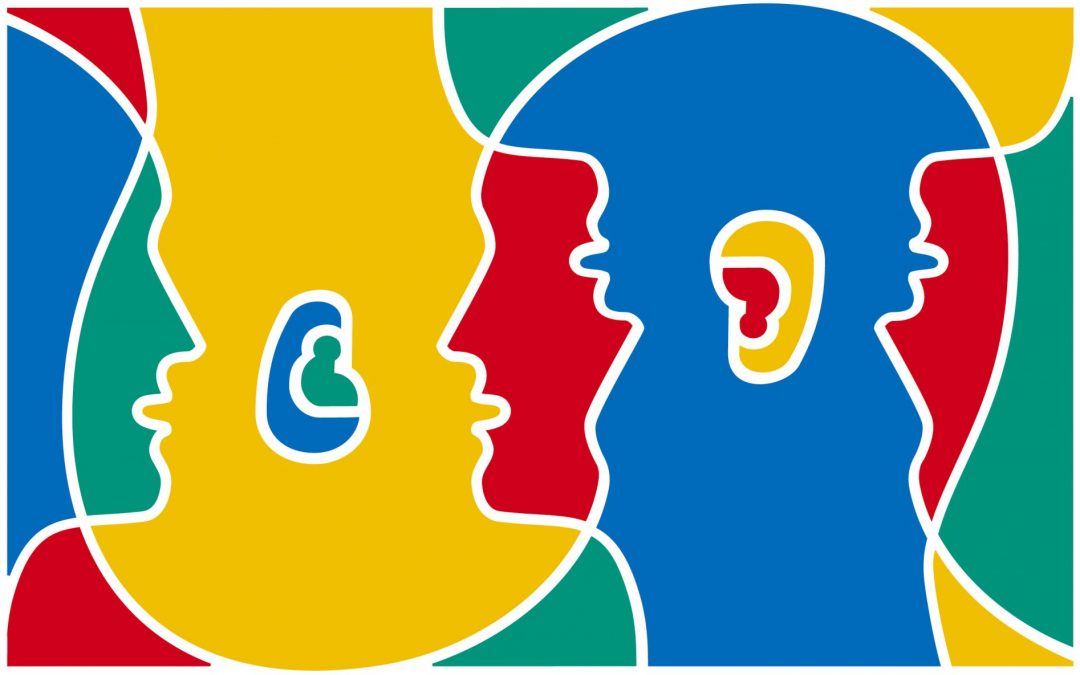UK winners of the European Language Label 2013
They include:
Arabic Online
Arabic is entirely surrounded by myths. It is seen by many European learners as a very difficult language to learn, with a complicated grammatical system, too many exotic sounds, complex vocabulary and an indecipherable script. The aim of Arabic Online is to ‘de-mystify’ Arabic and prove that the language is indeed accessible to European learners.
Arabic Online is unique in that the Arabic course has been designed according to the requirements of the Common European Framework of Reference for Languages for level A1. The course features audio dialogues with voice-recording facilities and role plays, grammar presentations, a wide variety of exercises and activities, and informative cultural notes which contribute to intercultural understanding and counteract stereotypes. In addition to the course, numerous free resources are available on the website.
The project is supported by Facebook and Google+ communities. The project has also developed iPad and Android smartphone apps, a paperback and ebook version of A Guide to Writing Arabic and videos posted on YouTube. By including business-oriented modules, Arabic Online can also help improve the capacity of companies to deal with the Arab world. The course is used every day by thousands of learners across Europe. It has been adopted into the teaching programmes of major universities, schools and government institutions.
Arabic Online has been supported by the European Commission’s Lifelong Learning Programme and was developed by an international consortium. The co-ordinator, Pendragon Educational Publishers Ltd, specialises in the development and publication of language learning textbooks and materials for both print and digital media. Pendragon is an accredited app and software developer.
The course can be accessed via www.arabiconline.eu
Languages for All
Languages for All is a programme at the University of Essex that provides its students with the ability to study a language alongside their degree, regardless of their discipline or stage. All Essex students are eligible for one year of language tuition at no additional cost and additional tuition in subsequent years is available at a moderate fee. Languages for All does not affect students’ grades in their core degrees and is designed to fit alongside a busy student schedule.
It aims to encourage language learning among students in order to increase the following skills:
• language proficiency
• employability
• the confidence required for students to work, travel and study internationally
• intercultural awareness.
The programme was started in 2012/13 and has been very successful, gaining high approval rates from students. Students can study a variety of languages at different levels and two different modes of study are offered: a taught evening class in a traditional classroom setting, which takes place once a week, or an innovative online taught module with tutor support and additional conversation classes.
‘The project takes the idea of making language learning both desirable and feasible for all students. Rather than offering a series of disparate courses which are not presented as an institution-wide, relevant whole, the Essex Language Centre brings together an innovative one-stop approach backed by the University at the highest level. The institution not only emphasizes the importance of language learning but recognises
the fact that a blanket one-size-fits-all approach will not work for a disparate client base.’
Languages currently offered are: Arabic, French, German, Mandarin Chinese and Spanish. Additional provision for Russian is planned for 2013/14. www.essex.ac.uk
Languages, ICT and CLIL
Peace School is a supplementary school which was formed with the aim of enabling children to develop a better understanding of the Arabic language and culture through an engaging and inspiring curriculum.
The school has two key aims: to enable the children that attend to develop a better understanding of the Islamic / Arab culture through learning Arabic; and to encourage children and families to better integrate their culture of origin into British society and contribute positively in this multicultural society.
The CLIL project tries to make a link between the language and the subject students study at school; thus the project is relevant and has a high-level function in daily life. Through the use of the host school’s ICT and Smartboard equipment, lessons are more interactive, which creates an exciting atmosphere. For the older students, there is a greater emphasis on cross-curricular themes with recent topics such as Black History Month, slavery and ‘Who am I?’ taken from the National Curriculum and taught in Arabic, thus providing dual-focused education where attention is given to the topic as well as the language.
The use of ICT software such as digital storytelling and VoiceThread allows a more integrated and holistic educational experience. Multilingual digital storytelling is used as a form of life writing, about personal and shared experiences where children create stories through pictures and videos that are guided through voice narration and organisation of text. Students’ skills in this area are further developed through the use of VoiceThread for groups to peer-assess and critique digital stories.
This approach provides opportunities for practising language in context with real native speakers in all four skills areas (reading, writing, listening and speaking). It also caters for different learning styles and ages, thus making lessons engaging for learners – a phenomenon new to Arabic supplementary schools.
Languages, ICT and CLIL is this year’s winner of the British Academy Prize.

